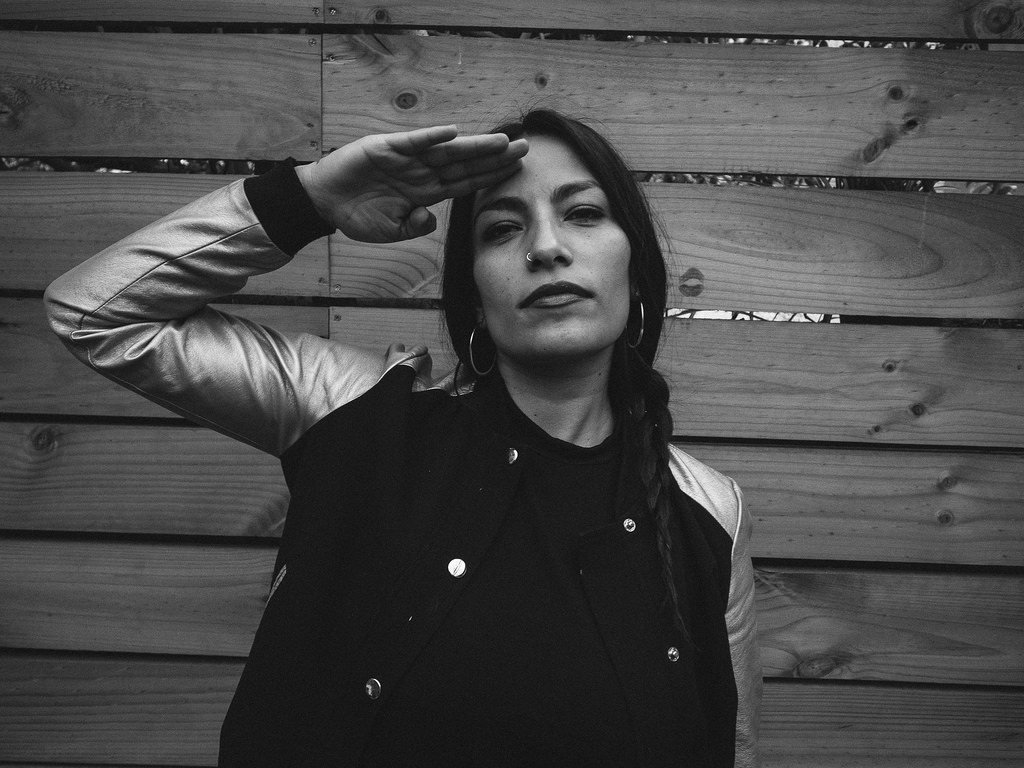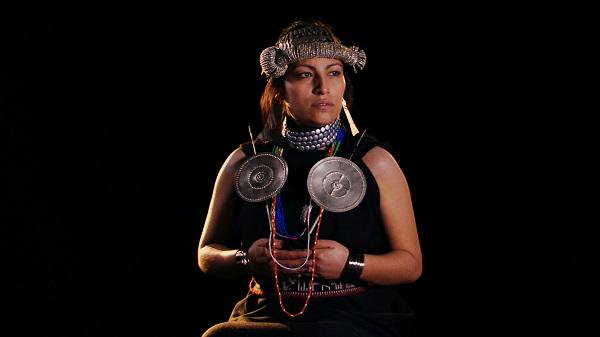
"Hip-hop is a land for the landless."

Her parents were political activists during the Chilean Pinochet regime. They emigrated to France in 1977. Ana found further political education in her parents, studying resistance and listening to French-African rappers. This is why the debut album is 1977, acclaimed and furious.
Politics vibrated through Ana's music since the 90's Mastiza (Chilean hip-hop team) era. Now she creates a hypnotizing sound of indigenous Andean folk influences, her personal life and rap.
"This wave of fascism, it is worldwide. It is not only in the United States. It is in Europe and Latin America, too; reaffirmation of the idea of nations with flags and walls. We have to go back and ask: what is America?

Born from a multiplication of immigrants, and even more, also born of the genocide of the Indians who lived there before they arrived from Europe and other parts of the world in search of gold, land or work. One must ask: what is it to be an American?" (Latino Rebels)
Ana Tijoux is indigenous American revolution. She is living it much like Chile has, day in and day out for democratic power, a better future.
1977 accompanied student uprisings in 2012. Now, '#Cacerolazo' (clashing pans to protest) is the viral anthem to more marches and national dissent. You hear the actual spoons, the pots.
Ana Tijoux, '#Cacerolazo' (Pitchfork, 10-22-19)
Ana Tijoux: Conmemorando la resistencia indígena (Latino Rebels, 10-11-15)